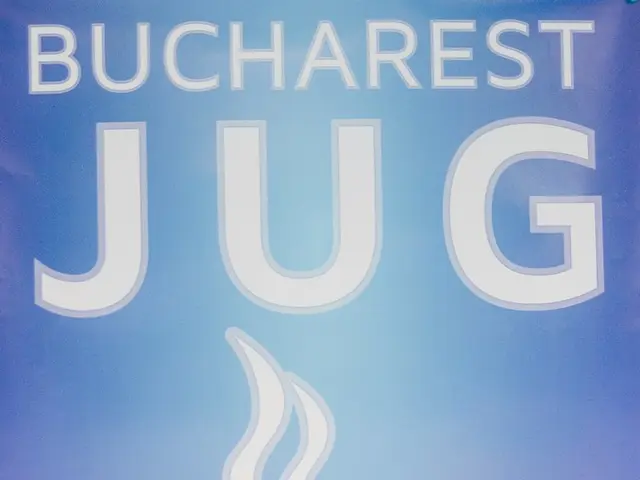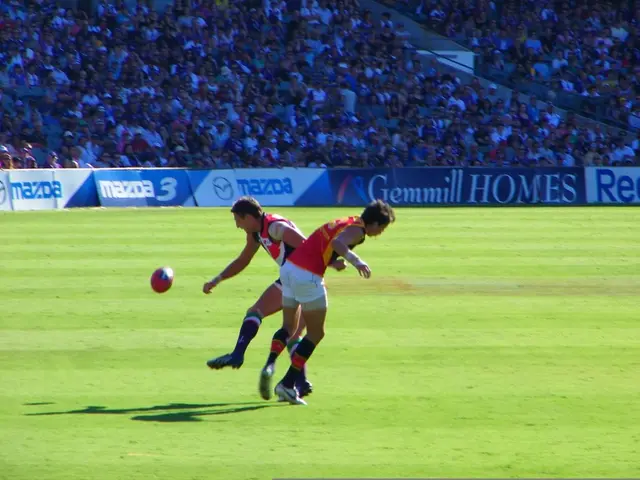Imposition of Unified Gambling Tax in UK: Apprehension Over Horse Racing Sector's prospects
Rethinkin' the Gamblin' Game: Unified Taxes Signal a Shift for British Horse RacingOpinion piece by Matthias F, Edited by Angie B, Published on: 29.04.2025, Last updated on: 29.04.2025
The U.K.'s Proposed Overhaul of Gambling Taxes Leaves the Racing World in Suspense
The British horse racing industry is standing tall, cautiously eyeing the storm brewing on the horizon, symbolized by the ambitious plans for gambling tax harmonization (📷 Wikipedia).
This Ain't No Old Trick Pony: The U.K.'s New Gambling Tax Regime
The U.K. government has tossed its hat in the ring, pledging to revamp gambling tax structures, instating a unified tax rate for online gambling rather than the current fragmented system [Link in English]. But before it becomes law, the government wants to hear from the gambling industry - and they don't pull any punches, with the deadline for comments set for July 21, 2025.
While the U.K. currently levies a 15% tax rate on online fixed-odds sports bets, including prestigious events like the Cheltenham Festival and the Grand National, online casino games are taxed at 21%. These rates could be set to change, with whispers of the tax for horse racing bets potentially rising to 21%.
The British Horseracing Authority and Betting and Gaming Council Aren't Bullish on Tax Hike Plans
Representing opposing sides in the gambling field, the Betting and Gaming Council (BGC) and the British Horseracing Authority (BHA) are voicing their concerns over potential tax increases. The tax reform, introduced earlier this year, is drawing flak for its potential to sink the racing industry, with revenues and jobs on the line.
James Murray, the U.K. Treasury's Financial Secretary, isn't sugarcoating it. "The tax system needs to keep pace with progress. The current setup needs a shake-up to accommodate the fast-paced and ever-growing nature of the sector," NEXT.io quoted Murray.
The State of British Horseracing: Just Don't Call it a Comeback
British horse racing has been on a downward spiral for a hot minute, with a steady decline in attendances at racecourses over the years. Numbers dipped from approximately 6.13 million annually in 2015 to mere 5.62 million by 2019. In 2022, the industry took a bitter punch, experiencing a 25-year low in attendance, with less than 5 million spectators.
Last year, the U.K.'s much-loved radio station BBC Radio 4, dropped its daily horse racing tips from its programming after an impressive run of 47 years, echoing the dwindling impact of racing in the U.K.
Criticism of Tax Adjustment: Painting a Grim Picture of Potential Consequences
The BGC is sounding the alarm over the proposed tax harmonization, warning of potential consequences if the tax rates shift. If betting operators were pushed to offer lower odds to counter increased tax burdens, it could result in a smaller return for bettors and reduced activity in the sports betting sector, impacting revenues and job security in horse racing.
Higher taxes could also drive betting companies offshore, leading to not just lost revenue for the U.K., but the loss of much-needed jobs in the racing industry.
Enrichment: The potential impacts of a unified tax rate for online gambling on the British horse racing industry could be multifaceted, with both pitfalls and potential advantages:
- Revenue Implications: A unified rate could destabilize the Levy system, long instrumental in funding the racing industry through betting revenues. However, a well-structured framework could harness online gambling growth, provided racing retains favorable tax concessions or direct funding mechanisms.
- Employment Risks: Job losses may arise if reduced funding impacts prize money, leading to smaller racing fields and diminished ancillary businesses. Regulatory adjustments could help preserve jobs by maintaining investment in races and infrastructure.
- Regulatory Considerations: Global best practices, such as the SAFE Bet Act model in the U.S., underscore the challenge of balancing public health objectives with industry viability. In the U.K., strict affordability checks and tax policies could risk alienating casual bettors unless dedicated funding safeguards, such as exemptions or revenue-sharing mechanisms, are put in place for racing.
- Global Context: The global horse racing market is expected to reach $599.52 billion by 2029 driven by online betting. Overregulation in one market risks redirection of investment, accelerating job and revenue leakage to more conducive tax regimes.
In essence, while a unified tax rate holds potential to streamline oversight and capitalize on online gambling growth, its future lies in the implementation of targeted exemptions or revenue-sharing mechanisms to forestall any potential losses for British horse racing.
What's the impact of the proposed gambling tax harmonization on the British horse racing industry in 2025? The U.K.'s decision to revamp gambling tax structures and instate a unified tax rate for online gambling could lead to a shift in the racing world, with potential increases in tax rates for horse racing bets causing concerns among industry representatives, such as the British Horseracing Authority and Betting and Gaming Council. These bodies are wary of the potential tax hike plans, as they see the risk of reduced revenues and job loss in the racing industry. Despite these concerns, the U.K. Treasury's Financial Secretary, James Murray, believes thetax system needs a shake-up to accommodate the fast-paced growth of the sector.








